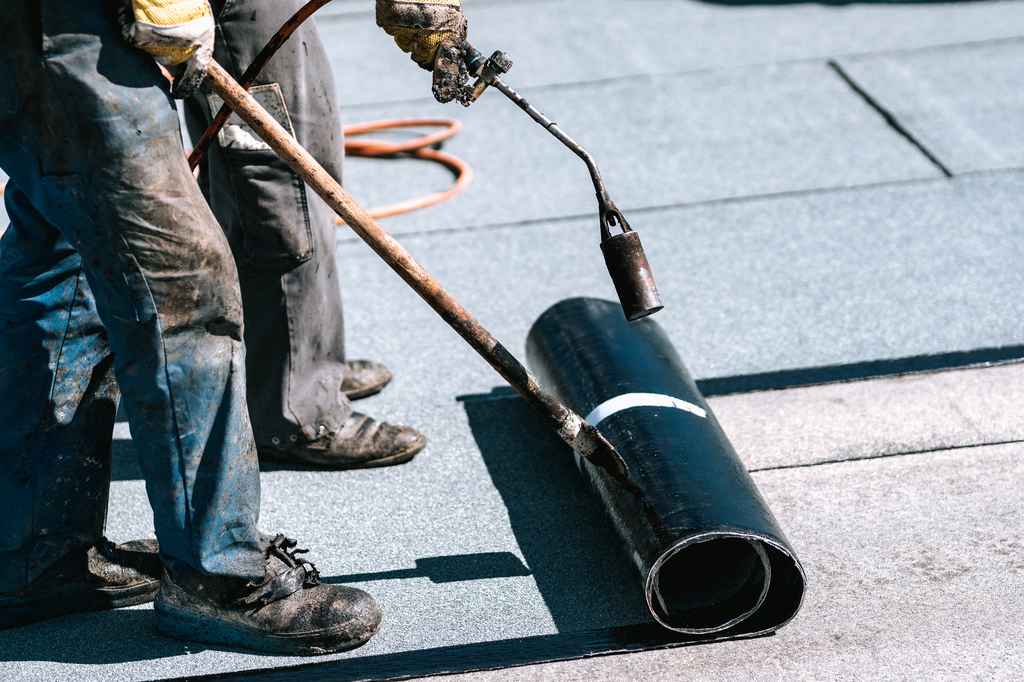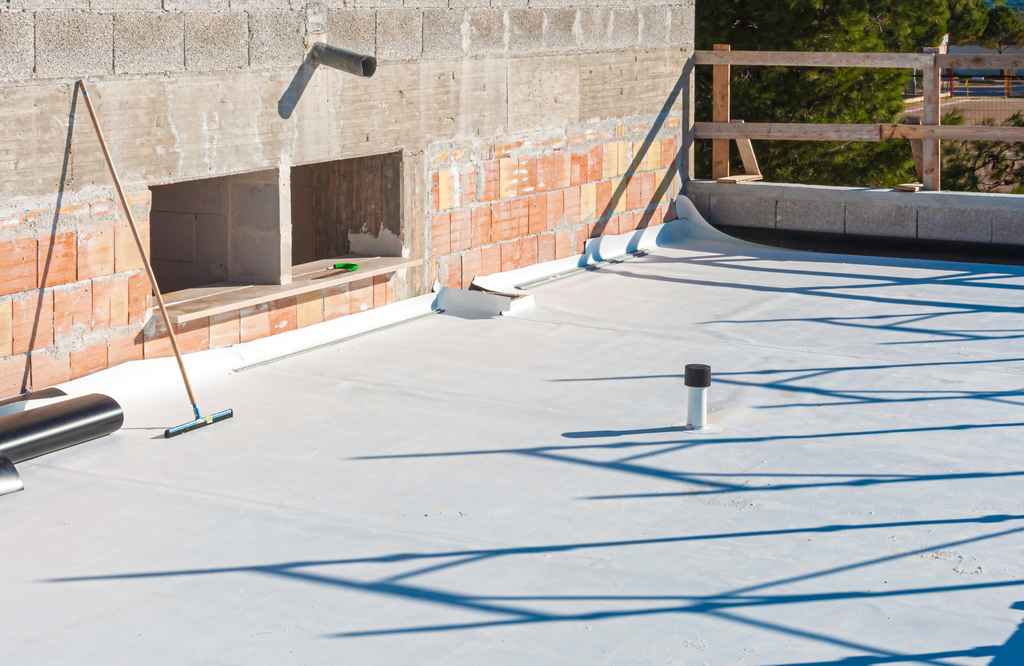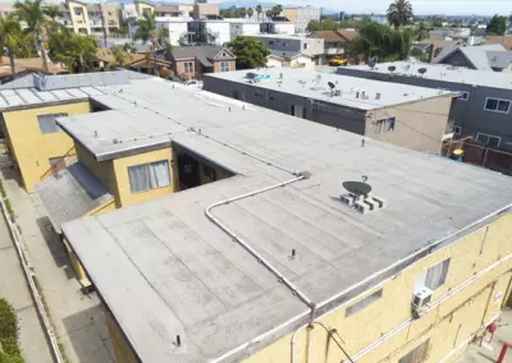
EPDM
EPDM, or “rubber roof”, is manufactured in large sheets or rolls and is quick and easy to install, on top of being one of the most inexpensive roofing materials around. EPDM roofing membrane is very lightweight, so the roof deck will not need any reinforcement. And because there are few seams, leaks are rare and a good quality EPDM can last for decades.
Pros
EPDM generally comes in at the lowest price per square foot for flat or low-sloped roofs. Generally, it is long-lasting with a lifespan of over 20 years, and it can be a very energy-efficient roof choice.
Cons
Fully adhered or mechanical EPDM systems are slightly more expensive than TPO. In the wrong environment and toward the end of its life, EPDM can start to become fragile. Additionally, there is a common thought that the black flat EPDM roofs are not the prettiest sight to look at.

TPO
TPO comprises a single layer of blended synthetic rubbers. Its primary advantage is that it’s typically the lowest material cost for single-ply membrane roofs. It can help reflect the sun’s light and stop heat buildup within the building. TPO resists corrosion, mildew, and algae growth, and does not require pressure washing, making maintenance even easier.
Pros
TPO provides outstanding resistance to ozone, ultraviolet rays, and some chemical exposure at a low cost. It reflects heat radiation better than TPO and resists mold growth, dirt accumulation, tears impacts, and punctures.
Cons
Heat welding the seams requires a very high-quality installation to hold up over time. Some formulations of TPO may not last much past the 10-year mark, and newer technology makes for lack of a proven track record.

Modified Bitumen
Modified bitumen has been designed for low-slope roofs and successfully used across the nation for over 40 years. Its unique properties give it many of the benefits of old-fashioned built-up roofing and some of the convenience of today’s single-ply roofing systems. If you are re-roofing a flat roof, mod-bit should be on your list of options.
Pros
A modified bitumen roofing system is one of the most trusted roof systems because of its inherent thickness, on average four times thicker than a standard single-ply thermoplastic roof membrane. With a granulated cap sheet, modified has a better chance of standing up to foot traffic than other systems.
Cons
A modified bitumen roofing membrane may only be minimally reflective and absorb heat from the sun rather than reflecting it away from the building. Buildings with roofs that tend to hold rainwater or melting snow will wear sooner, as mod-bit plies and seams do not handle standing water as well as their counterparts.
At Guardian Roofs, we will ensure you the job is done as intended the first time. If you’re ready to see what your roofing solutions can look like, schedule an estimate with Orange County’s reliable roofing company today.
